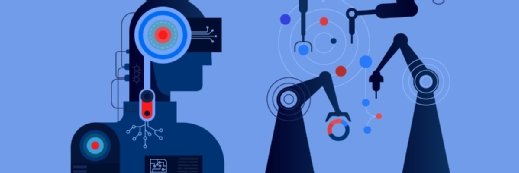Merck, Evidation Eye Remote Patient Monitoring for Alzheimer's Care
The pharma giant and digital health company are partnering on a remote patient monitoring program that will use mHealth wearables and smartphones to develop care management protocols for people living with Alzheimer's Disease.
Merck is partnering with a digital health company to launch a remote patient monitoring program aimed at people living with Alzheimer’s Disease.
The pharma giant and California-based Evidation Health will use mHealth wearables and smartphones to track the daily routines of elderly participants with and without cognitive impairment. The RPM platform will collect the data passively.
“Advances in passive remote monitoring are providing new compelling opportunities to identify novel endpoints and digital biomarkers for Alzheimer’s disease,” Michael Egan, vice president of neuroscience global clinical development for Merck Research Laboratories, said in a press release. “This collaboration with Evidation will allow us to explore new and potentially faster ways to evaluate the potential of candidates in development for the treatment of Alzheimer’s disease.”
“We know that digital measures have the potential to make visible what is currently clinically invisible,” added Evidation co-CEO Deborah Kilpatrick, whose company has participated in telehealth projects targeting such issues as COVID-19 detection, pain management, medication adherence and chronic care management. “This is an important, early step towards accelerating the development of new therapies for neurodegenerative diseases, and, together with Merck, we are committed to better understanding, diagnosing, and treating Alzheimer’s Disease at its earliest detectable stages.”
Researchers believe that changes in cognition, sensory and motor function can be detected in patients diagnosed with Alzheimer’s well before those changes become visible and affect daily life. They hope that an RPM platform can help providers improve care coordination and management plans, thus improving quality of life and clinical outcomes later on.
These platforms might also help those living with Alzheimer’s to take more control over their care at earlier stages, allowing them to live at home or in a structured setting instead of an assisted living or skilled nursing facility.
This isn’t the first RPM project to target Alzheimer’s. In 2019, the Washington University School of Medicine in St. Louis launched a five-year project through its Dominantly Inherited Alzheimer Network (DIAN) program that uses mHealth tools and gamification technology to monitor sleep, diet and other biomarkers in those living with the chronic disease.
The platform “will also be used to support a registry for families confirmed or suspected to have the disease and a longitudinal observational study of family members with parents who have the gene mutation associated with the disease,” officials said. “With research suggesting that brain changes occur years before symptoms develop, the goal is to identify these changes in presymptomatic carriers. Ultimately, researchers hope to develop therapies to detect and treat DIAD at its earliest stages – or prevent it altogether.”
Earlier this year, Apple announced a partnership with biotech company Biogen to study whether wearables like the Apple Watch could be used to detect early signs of cognitive decline.
“Strategies that optimize brain health and improve cognitive function are the key to reducing the risk of dementia and this study has the potential to discover transformative ways to monitor and assess brain health,” Nora Super, executive director of the Milken Institute Alliance to Improve Dementia Care, said in a press release announcing the multi-year study. “We are always eager to see technological innovation, and we are particularly interested in the user convenience of data collected through the use of everyday devices like Apple Watch and iPhone. This type of innovation may enhance our understanding of the aging brain and therefore may ultimately help us understand how to maintain and improve brain health throughout adulthood.”





